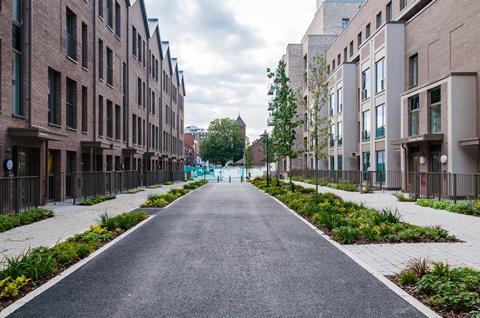Housing associations warn financial sustainability of shared ownership needs to be monitored following changes introduced by the government
Housing associations have warned the government’s changes to the shared ownership model have put additional costs on providers and risk impacting the viability of schemes.

A lack of grant funding and increased repair costs cited as challenges to shared ownership delivery in LUHC inquiry evidence
They have said that recent changes introduced to the model, including a 1% staircasing option, the repairs allowance of up to £500 per year for 10 years and the 10% initial purchase share have increased the affordability of the shared ownership product for buyers, but have also added costs onto registered providers.
In written evidence submitted to the Levelling Up, Housing and Communities (LUHC) committee’s inquiry on shared ownership, multiple housing associations noted the need for more grant funding to deliver shared ownership properties in the current economic climate.
Places for People, the 240,000-home housing association, said it was concerned about registered providers being expected to develop without any grant funding.
They added that while they are a strategic partner with Homes England, other housing associations may have difficulty committing to development in the long term.
Places for People suggested that the government could provide a targeted subsidy to support land acquisition or construction in areas where there is a shortage of shared ownership homes.
In its submission, the Riverside Group said that higher grant levels are needed to reflect the current market conditions and to take into account the increased costs placed on providers through the new model, such as the repairs allowance. It stated that the administration of the scheme presents a challenge, for example in terms of determining whether a repair is covered by the allowance.
Riverside Group noted that the challenges associated with repair costs differ depending on whether a tenant purchased their property through the 2011 or the 2021 shared ownership model.
Sovereign Housing stated that housing associations are in a “challenging position”, as they face real-terms reductions in income, and must balance remaining financially stable against investing in existing and new homes, while supporting customers, including shared owners.
Sovereign’s written evidence said that the government must alleviate other costs by increasing funding through Homes England.It added that the government should consider simplifying the shared ownership product, rather than adding new initiatives such as First Homes.
On repair costs, Jigsaw Homes stated that they have adopted a reimbursement approach, requiring purchasers to pay for any repairs and then claim the cost of this back.
Jigsaw’s written evidence said: “Our view is that purchasers have been through an affordability assessment and should be able to afford repairs in the same way that outright purchasers do”.
See also >> Gresham House hires Peabody manager to head up shared ownership
Regarding affordability, Abri Homes suggested raising the £80,000 income cap (£90,000 in London) and creating more flexibility so that buyers wanting to buy through shared ownership in high property value areas are not prevented from doing so.
Providers said that the rent to buy scheme caters to a different group of potential buyers while also serving as an affordable alternative to shared ownership. However, both Abri and Places for People have observed that tenants who take up the scheme often don’t proceed to buy their homes.
Rent to buy was introduced in 2014, and allows tenants to rent at an affordable level for five years whilst they save for a deposit, after which they are given the option to buy their property.
In 2020 the government said the reforms would deliver on its “commitment to introduce a fairer and more transparent model of Shared Ownership”.










No comments yet